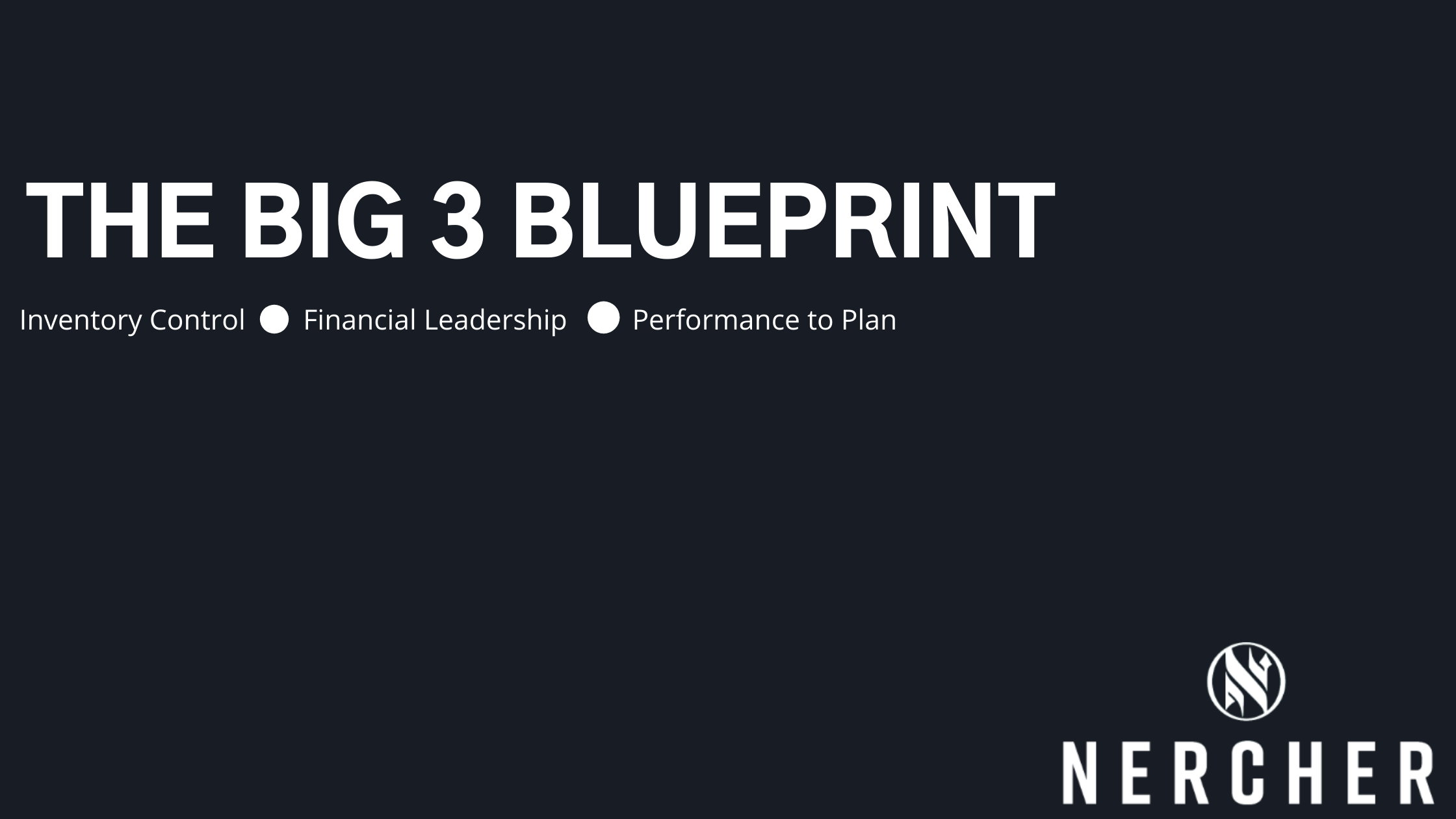The Big 3 Blueprint: How to Set Your Small Business Up to Scale Responsibly
January 11, 2021
Comments: 1
Posted by: Jake Milner
"Revenue cures all." I learned this early on while managing a large warehouse and distribution operation for a very large company. When working through our location's financials and finding all those wonderful, red numbers that needed improvement, my boss used to say "We just need more volume. Revenue cures all." In hindsight, this was true. As a global corporation, we had all the tools you could imagine to help us run a solid, financially stable operation. The more revenue that came in, the better our numbers looked. Since the launch of Nercher and our focus to translate best practices from big business into simple, sustainable tools for small business, what I've learned is that this is rarely the case for small companies. Cash is King? Yes. Revenue cures all? Not necessarily. Let's Dig In...
The Difference Between More Sales and Responsible Growth
Small, growing businesses must realize the difference between simply increasing revenue and scaling responsibly. Imagine increasing your sales revenue by $1million. This would be something to really celebrate. However, your cash position worsened, you blew your margin, and your monthly expenses raised disproportionally with the increased sales. You now realize you increased revenue by a million dollars this year and showed less money to the bottom line than you did without the extra sales volume. This is the uncomfortable position one of our clients found themselves in last year. Their sales grew quickly before their operation was ready to support it. It's imperative to dig into the operation and ensure you have a good foundation in place. Then, as you grow the revenue, you can be sure that you're scaling responsibly instead of simply increasing revenue.
The Big 3
While there are many ways to make impact in a small, fast paced business, we'll focus on what we call The Big 3 Levers for Small Business Turnaround to ensure your operations team is ready to support a killer sales team.
1. Inventory Control
It all starts here. You've got to know what you have to know what you need. Bad inventory control leads to large issues like over staffing, improper production scheduling, bad purchasing decisions, and late order fulfillment all of which have a major negative impact on your bottom line. The worst part? If "it's always been this way," you may not even realize you're severely over spending to run your operation. Small business leaders must ensure their teams have good practices in place for daily controls, cycle counts, and purchasing and receiving inventory. You and your staff members need to be able to trust that the system is correct in order to make sound decisions.
2. Financial Leadership
Make sure there's a Financial Leadership strategy in place. How do you and your staff evaluate the financial health and progress of your business? You'll want to make sure you have a clear planning process in place to write the revenue and expense targets for your business and break the plans out to departments and individuals. As a business leader, you need to be well versed in your company's financials and be able to evaluate them as well as help educate your staff. Your team is much more likely to take an active role in helping to deliver the plans if they played a role in creating them and have a basic financial understanding of what they're shooting for and why. The "WHY" is the important part. Remember, if you can't explain it simply, then you don't understand it well enough.
3. Performance to Plan
This is simple but often overlooked. People want to know what the goal is, and they want to know how they're doing in relation to that goal. Find your process to meet at least weekly and share performance and financial updates. These meetings should be short and stay on point. At Nercher, we call them weekly huddles and aim to keep them to 15 minutes or less at the start of a new week. You'll want tools in place that assist you in communicating your team's performance vs plan easily and in real time. Often times, by the time you run reports and compile all the data for a team meeting, you're working with old information. This is a big part of our process with Nercher360, which aims to give business leaders live, actionable insights without running reports or digging through data. You can take a look at how some other companies are taking advantage of Nercher360 HERE. There are a lot of ways to accomplish this. If your company has an ERP or Point of Sales software, explore the reporting capabilities and talk though a process with your leaders. The key is to know your business at all times.
For a more in depth look at Creating a Performance to Plan Culture, visit The Performance to Plan Culture and How to Get there.
If you want help evaluating The Big 3 for your business, find our FREE SCORECARD below.
Is Your Operation Ready to Scale Responsibly? Use this scorecard to find your company's best opportunities within The Big 3 in 10 minutes or less.
Read Comments
Asepavon
March 8, 2022
It was specially registered at a forum to tell to you thanks for the information, can, I too can help you something? https://howytooutoknowcgfdf.org/map.php

